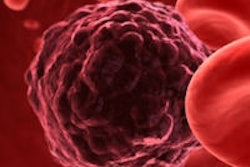High-risk types of human papillomavirus (HPV) are increasingly associated with oropharyngeal squamous cell carcinoma (OPSCC). However, HPV-positive OPSCC is highly curable, and patients with HPV have better survival compared with HPV-negative patients, whose cancers are usually associated with alcohol and tobacco use.
To better understand the molecular mechanisms underlying these differences, Jochen Hess, PhD, and colleagues at University Hospital Heidelberg monitored changes in DNA modifications in HPV-positive and HPV-negative OPSCCs (Journal of Clinical Investigation, May 1, 2013).
They applied an array-based approach to monitor global changes in CpG island hypermethylation between HPV-negative and HPV-positive OPSCCs, and identified a specific pattern of differentially methylated regions that critically depends on the presence of viral transcripts. This DNA modification pattern was significantly correlated with improved survival in three separate groups of OPSCC patients, the researchers noted.
"Our study highlights specific alterations in global gene promoter methylation in HPV-driven OPSCCs and identifies a signature that predicts the clinical outcome in OPSCCs," they concluded.



















